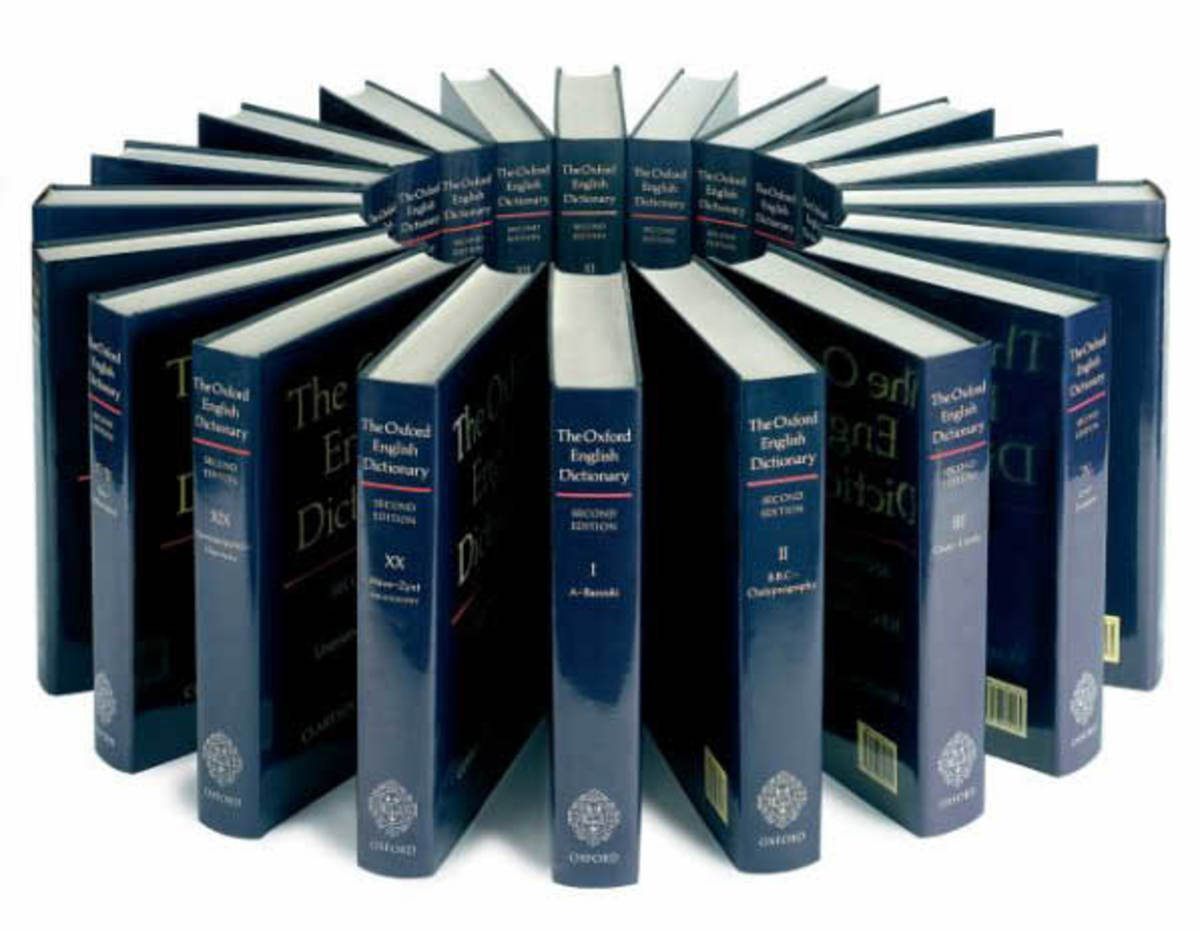Improving Your Vocabulary for the GRE
About The GRE
The Graduate Record Examination (GRE) is a requirement for most graduate degree programs. The General GRE has three sections: Analytical Writing, Quantitative Reasoning, and Verbal Reasoning. This hub deals specifically with improving your vocabulary skills for the GRE. Many schools look at an applicant's score on the verbal section of the GRE as an indication of how skilled the student will be at comprehending the graduate material. Their score can therefore be one of the deciding factors on admission.

Methods of Improving Your Vocabulary
Reading
The number one way to improve your vocabulary is to read frequently. Reading puts new words in a context and helps your brain to form the connections between the word and its meaning. Reading both fictional and nonfictional books will result in a higher vocabulary. For the GRE, I recommend putting a lot of energy into reading nonfiction books intended for intellectual audiences. The bonus with reading this material is it will improve your reading comprehension ability--a major part of the verbal section of the GRE. Be sure to practice active reading. Active reading involves asking yourself questions about what you have read so that you get into the habit of paying attention. This will help you pick up on vocabulary more quickly and will also help you prepare for the Reading Comprehension questions in the verbal section of the GRE.

Flash Cards
The down side of reading is that it consumes a lot of time, something you may not have a lot of if you are preparing for the GRE. Many people use flashcards to help them gain a larger vocabulary more quickly. Many people report that memorizing these flashcards was extremely helpful on the GRE. Memorizing words and meanings in this manner is somewhat more difficult because your mind naturally learns the meaning of words through context rather than direct memorization. Be sure to go through your stack of words at least daily, and anytime you have a few minutes to spare. Asking a friend to quiz you will often work well too.
Here are some possible sources to build your stack of cards from:
Latin and Greek Prefixes, Roots and Suffixes
Many of the more complex words in the English language are made up of Latin and Greek root words. Although you will not receiving any words that are strictly Greek or Latin, by knowing the definition of the prefix, root, or suffix making up part of an English word you may be able to make a more educated guess on what the word means. See the link under resources for a list of Latin and Greek words that are good to know for the GRE. If you have very little time to study for the GRE, then I suggest concentrating most of your time on learning these words.
Lists of the Most Common GRE Vocabulary Words
Lists of the vocabulary words most frequently found on questions in the GRE are easily obtainable. The many GRE test preparation books available will each contain a list of the most commonly used words, but a quick search on the internet will also bring up similar lists. Although learning these words will not hurt you, often I have heard people say they learned hundreds of these words and saw few if any on their actual test. Which is why if you have a limited amount of time you really should concentrate on those Greek and Latin prefixes, roots, and suffixes.
Create Flashcards while Reading
If you have a significant amount of time to prepare for the test, then I strongly recommend that you create flashcards as you read. Anytime you encounter a word you don't understand, create a flashcard for it. This will slowly develop a very large set of cards and will help you make the most of your reading.
Good Verbal Preparation Books
Verbal Workbooks
Lastly, get a decent GRE Verbal Workbook. These books will contain hundreds or words that are commonly used on the GRE and will help you get your mind tuned up for the test day. They are generally pretty inexpensive and contain hundreds of words commonly found on the GRE, practice questions, question answering strategies, and extensive details about the test. If you have less than a month to prepare, one of these books is essential.
Contextual Learning
Arguably the greatest way to learn vocabulary is through experiencing the word in context. When you process a word in it's context you strengthen the connections in your brain between the word's name and it's meaning. Flashcards help you to practice a word with it's associated definition, but this alone is a slower method of memorizing. Anything you can do to practice saying or using the word in the context of its definition will skyrocket your vocabulary absorption.This is why reading is considered such a powerful way of expanding your vocabulary; it puts the word in the context. The more ways you can contextually process each vocabulary word, the more likely your brain will link the word to the right definition.
Here are some ways of contextually processing your vocabulary list:
- Say the vocabulary word in a descriptive sentence after reading the flashcard and definition.
- Take your list of words or stack of flash cards and write out a sentence using the word. However, do not write the vocabulary word in the sentence, but instead leave a blank where the word should be. Wait a while, and then go back and fill in the word that fits in the sentence.
- Have a friend say a contextual sentence omitting the word, and follow it by giving the word that fits in the sentence.
- Choose 3 words each day that you are required to use in a sentence while talking with someone.
Other Resources
- Greek and Latin Words for GRE Preparation
- How to Increase Your Verbal GRE Score | eHow.com
Your score on the Graduate Record Examination (GRE) can be the deciding factor on whether you are admitted into a graduate school. This article gives specific tips on improving your score on the verbal section of the GRE. - How to Increase Your Chances of Getting Accepted Into Graduate School | eHow.com
Graduate schools are highly competetive, and accept only a few students each year. These steps will help you increase your odds of getting accepted into your graduate school of choice.









